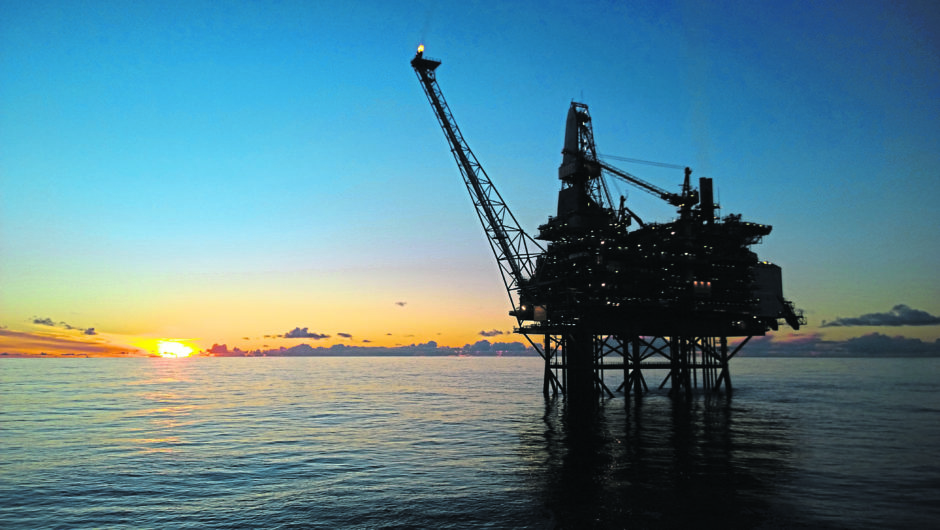
A price war between two of the world’s biggest oil producers has sparked one of the worst crude routs in decades, putting companies under “huge pressure” and threatening “brutal” cost cuts.
Brent crude, the global benchmark, nosedived by more than 30% at the start of trading yesterday as the worrying prospect of a looming production free-for-all spooked market traders.
Eight of the “top 10 fallers” on the London Stock Exchange were energy companies yesterday morning, with Premier Oil shares the worst affected, losing more than half their value.
Commentators said cost reductions achieved in the last five years meant existing North Sea fields remained profitable at current prices.
But they fear the collapse will dampen investment, resulting in new UK offshore projects being mothballed and work for contractors dropping off.
Energy economists hoped the feuding nations – Saudi Arabia and Russia – would settle their differences and agree on fresh production cuts, leading to a price rise.
Crude started sinking on Friday when it became clear that a pact between the Opec cartel and its allies, led by Russia, would disintegrate.
That alliance had supported prices since late 2016 by placing restrictions on output.
But the market has been weighed down by the spread of the coronavirus, which has stifled oil demand by reducing travel and industrial activity.
It was hoped that Opec and Russia would agree to remove a further 1.5 million barrels per day (bpd) of production from the market – or at least extend existing cuts of 2.1m bpd beyond the end of this month.
However, Russia walked away from negotiations without an agreement, gambling on the assumption that Saudi Arabia would whip other Opec members to deepen production cuts even without Kremlin participation.
Moscow’s gamble backfired spectacularly as Riyadh signalled its intent to ramp up production when current restrictions expire in April.
Brent responded by registering its sharpest drop since the Gulf War of 1991 to sit just above $30 (£22) per barrel – a price not seen since 2016.
It had clawed back some of those losses by late afternoon to trade at $37 (£28) per barrel, down 18.5%, while the ruble also tumbled.
Alex Kemp, professor of petroleum economics at Aberdeen University, said Saudi Arabia was resorting to Donald-Trump-esque, strong-arm tactics in an effort to bring Russia back to the negotiating table.
Prof Kemp said Saudi Arabia needed crude to go back up in order to balance its budget and fetch a higher share price for Saudi Aramco.
Marc Gronwald, senior lecturer in energy economics at the university, said neither country would not have expected the price to drop so low.
“Sooner or later they will be talking again,” Mr Gronwald agreed.
Paul de Leeuw, director at Robert Gordon University’s Energy Transition Institute, said the breakdown of the so-called Opec+ alliance had “sent shockwaves across the world”.
He described the situation as a “major setback” for energy companies and suppliers who “are still recovering from the last oil price downturn”.
Tom Ellacott, senior vice president, corporate upstream, at Wood Mackenzie, said the price collapse could “trigger” a new phase of “deep industry restructuring” worldwide.
His colleague, Fraser McKay, head of upstream analysis, said sustained prices below $40 would prompt “a new wave of brutal cost cutting.”
Andrew Reid, director at consultancy NorthStone Advisers, said oilfield service (OFS) companies would come under pressure if customers slashed spending on new projects.
He said some equipment and service suppliers had “very low margins, even in a boom market”, adding they are going to “feel the pinch”.
Mr Reid expects oil production companies to “go slow” on investment decisions for new field development projects. But projects which are already up and running will continue, Mr Reid said, adding that large schemes cannot simply be turned “on and off”.
Mr Reid added that many oil producers used “hedging” to lock in the prices at which they sell crude, offering them some protection from volatility. He stressed that the oil industry was “used to crises” and “quite resilient”.
Graeme Sheils, partner at Deloitte, cautioned against linking “short term emotion and pricing volatility to longer-term investment in the North Sea”.
Mr Sheils said North Sea industry had “responded well” to “cycles of flux” in the past by significantly lowering its cost base. He did agree that future investment activities would likely be “curtailed” as the “sanctioning of capital spend becomes more difficult”.
Mike Tholen, sustainability director at trade body Oil and Gas UK, also said companies would be “immensely cautious” in their near-term spending plans.
Yvonne Telford, senior analyst, north-west Europe, at Westwood Global Energy Group, said: “If low prices are sustained, it is likely to impact some higher cost producers in the UK and those companies without hedging in place could be negatively impacted.
“Based on the oil price drop over the weekend, companies are expected to be reviewing projects, plans and spending in terms of their economics in the low oil price environment. Companies are likely to be ‘tightening their belts’ again to weather the storm.”
Jack Allardyce, analyst at Cantor Fitzgerald Europe, said an extended price war would hurt all parties. “Prices will eventually rebound as current levels are below the marginal cost of production for the majority of operators,” he said, adding: “Sub-$40 isn’t sustainable for any longer than a short period, most likely just months.”
